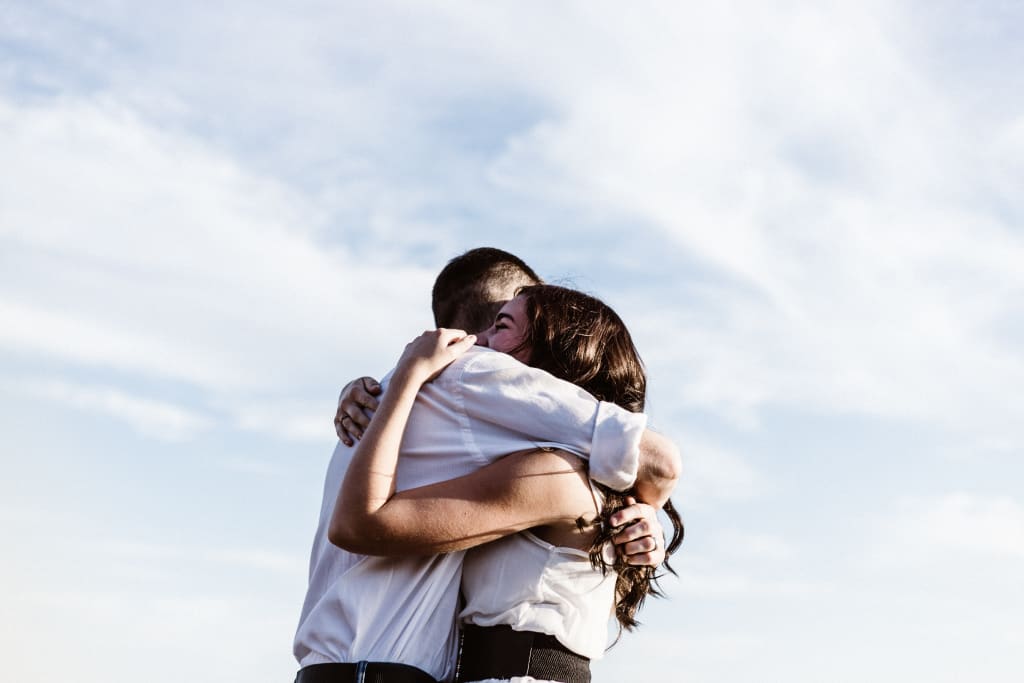From Retribution to Forgiveness
Resolve the Conflict in Your Heart.

Anyone familiar with heartbreak can agree that once trust is broken, it’s hard to forgive. As part of my journey to have better mental health, I’ve learned that people respond to trauma in different ways. Yet is it accurate to claim that people can only have one initial response towards a certain individual’s actions or a particular situation? While it’s common sense to know change is inevitable, many of us fail to accept or acknowledge a person’s changed behavior. For many of us to overlook the damage done we require people to adjust their demeanor accordingly. But what if we don’t physically have to see change in order to turn the other cheek? This isn’t to command anyone to forgive and condemn anyone who doesn’t. I would simply just like to raise awareness for healthy responses to emotional distress.
Recently, this topic tends to float around survivors of sexual violence.
“Forgive others, not because they deserve forgiveness, but because you deserve peace.” -Johnathan Lockwood Huie
Someone probably tried to spit that quote in your face the second you had enough courage to speak of the trauma you endured. In a way it kind of comes off as victim shaming. It’s as if you’re only a victim if you choose not to forgive someone. On the other hand that quote can be very helpful. It just depends on how people present it.
As a society, we tend to get so caught up with telling people how to overcome their most difficult challenges. We tell people to adjust boundaries, forgive others, create a support system, and so on. But many refuse to take the time to explain how to do each individual step. Without further explanation, things life forgiveness become a trend instead of a solution. (Please take note that I said, “a solution” and not, “the solution.”) When this happens, quotes like the one by Huie tend to lose their original intent. It’s easy to be part of the trend and say, “I forgive you” but how does one actually mean it? For the sake of this discussion, let’s give this quote it’s true value.
It’s assumed that the key to overcoming sexual assault is to forgive. When in reality that only helps some people. I happen to be one of those people, but let me explain how I was able to forgive.
To give honesty where it is due, I must admit a horrible truth. When I came forward with my story of suffering through sexual violence, my original goal was to give my offender what he deserved. I was playing to get even, and getting even meant his last few weeks of high school should be ruined.
Thankfully I came to my senses. I realized that settling the score made me a sinner just as much as his heinous act made him a convict. My spoken story was published, but only for the purpose of educating the community. Without completely exploiting anyone, I had reason to believe I wasn’t his only victim. Therefore, the more people aware of a crime can help to prevent it from happening over and over again. When I came forward about the atrocity, I chose to forgive my offender.
Sure I had a hunger for freedom from despondency and animosity. I wanted to focus on myself and not him or what he had done. Recognizing and announcing what I wanted didn't automatically give me the power to forgive. Change doesn’t eventuate because of wants; it happens by acting on what you want.
By me forgiving a criminal it opened the exit door for some of my friendships. People were repulsed by my kindness toward such an abusive individual. However, step one was realizing that forgiveness doesn’t require an outside opinion or approval. While some friends decided to leave well enough alone, others felt they were in a position righteous enough to condemn me. To this very day, deep in my heart, these friends were never forgiven.
Critics will claim it’s absurd to forgive a criminal and not someone who could just easily be labeled as an ex friend. In my defense, my offender only assaulted me; he didn’t deliberately throw my assault back in my face and continue to cause harm. After the incident we just went our separate ways.
The thing about forgiveness is you don’t have to mend the friendship or relationship, you only have to heal your heart. It was easier to forgive the man who made me a victim because we no longer invest time in each other’s lives. He no longer devotes his time to assault me. A year after the incident, my ex friends felt entitled to victim shame me. And that was like making me live my assault all over again. For someone to see you in your darkest hours and deliberately make you relive the one thing that brought you there in the first place, it makes it hard to forgive.
“Many people don’t want to forgive because they don’t want to feel like they are excusing the wrong done to them.” -Lacey Sturm
This quote makes me wonder why I still choose to hold a grudge. Maybe it’s the fact that I’m more mad at myself. After time and time again my friend’s true colors bled. How do you spread love if you’re going to condemn others for being a victim? And why did I ever keep listening and make an effort to attend your services? Forgiveness doesn’t excuse anyone for the wrongs they have done.
“Forgiveness is a way of saying, ‘I’m still hurt, but I want freedom from the hurt.’” -Jackie G.
So why don’t I want freedom from my suffering? Am I still wishing for my friend to be the gracious person I once knew? Fortunately, that’s not the case. I’m not waiting around for someone to change into the person I want her to be. Mental health advocates like Michael C. Bryan and Ariel Bloomer make it known that it is okay to sit with your feelings. Never keep pushing them to the side if you really want to heal. So for now, it’s okay to have these emotions. When I forgave my offender, I was towards the end of being healed, and for those whom I have not forgiven yet, I’m still in the rising action experiencing conflicts. I’m still in the process of learning how to heal and that’s completely acceptable as well.
The burning question though is, how to respond to someone’s apology when you’re not in a place to forgive? Statements like, “it’s okay” tend to give people the idea that whatever act they did was okay enough to do again.
“Just because she apologized doesn’t mean she automatically gained forgiveness. In order to love that person fully and to love yourself, you have to be honest with her where you’re at and say, ‘I don’t think I’m at the place right now.’” -Ellie Jackson
Being honest is what gets you through the healing process. I didn’t learn that from a famous singer or mental health activist, I learned that from one of my great friends.
Responding to emotional distress appropriately can be a difficult task. It’s not a paint by number that tells you exactly what to do. To summarize the thoughts of Michael C. Bryan, It’s more of an art form that comes with explained steps that may be helpful, but as an artist you are free to do things your own way. The only consent you need in order to forgive is your own. Friendships don’t have to be fixed, just make sure you find a way for your heart to be healed. Don’t beat yourself up if you’re still in the midst of the healing process. It’s perfectly okay to admit that. Forgiveness is an end result to a conflict. So don’t miss out on your own story by jumping ahead when you’re not ready.






Comments
There are no comments for this story
Be the first to respond and start the conversation.